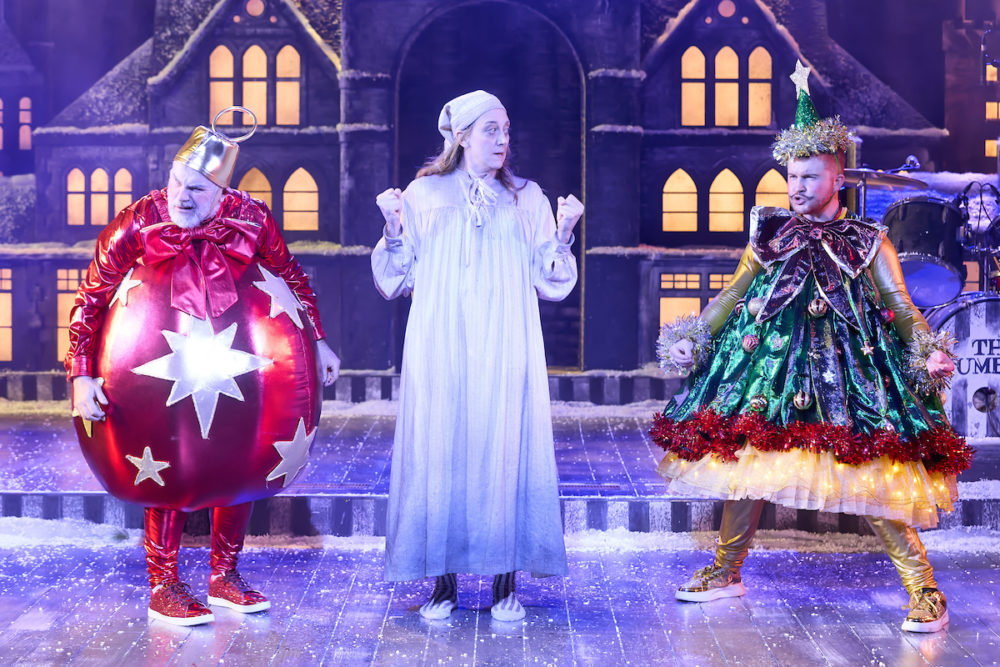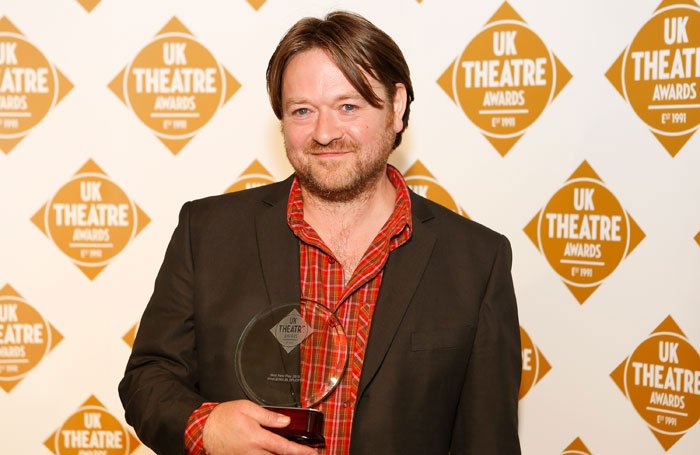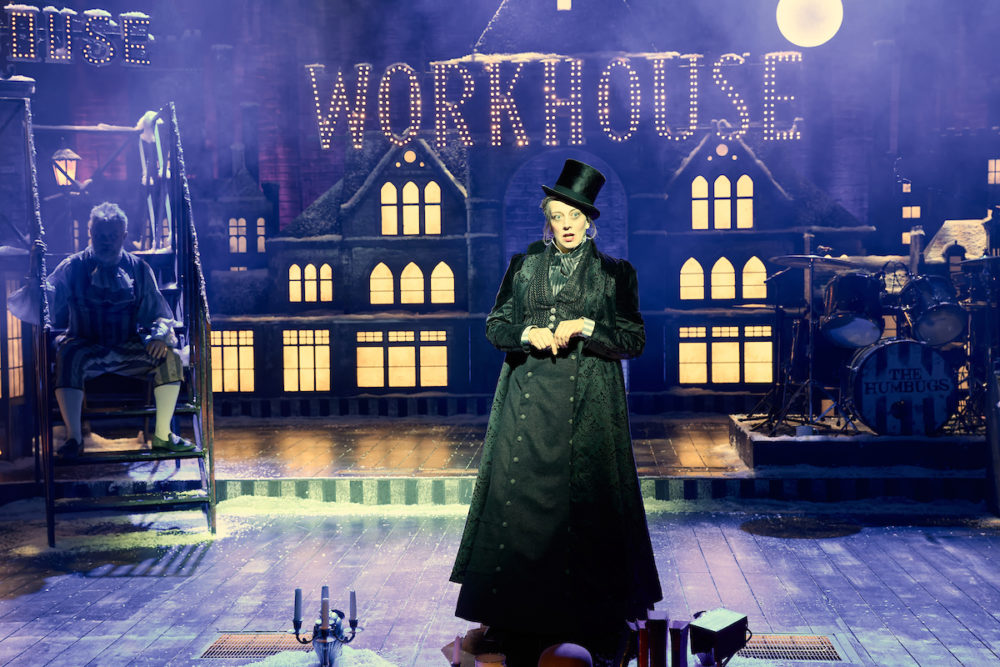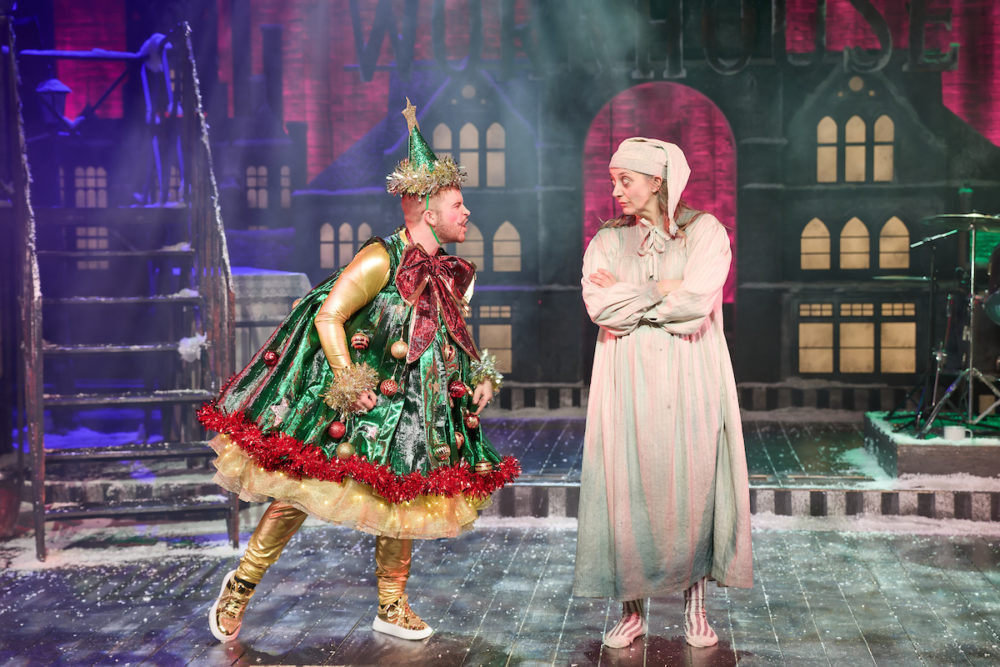Interview: Writer Gary Owen on reimagining A Christmas Carol with a Welsh twist

Rhys Edwards
Whether he’s transporting Euripides’ Iphigenia to Splott, Chekhov’s Cherry Orchard to Pembrokeshire or Shakespeare’s Romeo and Juliet to… well, Splott again, acclaimed Welsh playwright Gary Owen is renowned for his captivating adaptations of beloved classics.
But tackling Charles Dickens – particularly, his most enduring and universally adored story of all – was surely an intimidating prospect?
Perhaps not. The way Owen sees it, the true essence of A Christmas Carol will always belong to its author, no matter who gets to play around in his sandbox. ‘It just gets to the heart of what Christmas is all about – trying to go beyond yourself and your concerns and extend love out into the community.’
Finding appeal in generation after generation
He believes that as long as you retain these core sentiments from the original, you can’t go far wrong. Plus, this degree of separation creates a rare opportunity for him to actually appreciate his own work.

“I find it all kind of excruciating,” Owen says of watching his plays. “It’s lucky that with something like A Christmas Carol, there’s so much joy in the performance, and because most of it is down to Dickens rather than me, it’s a real treat to be able to go and see something that I’ve worked on and enjoy it.”
Owen’s version, currently playing at the Sherman Theatre till the New Year, is at least in good company. Are there any stories – Biblical Epics aside – that have been reimagined, revamped and rebooted more than the tale of Ebenezer Scrooge? It is difficult to think of any other malleable enough to have found appeal in generation after generation across the 181 years since it was first published.
Owen’s first memory of A Christmas Carol couldn’t exemplify this point more. “I think it was probably The Muppets?’ he suggests. ‘So, I clearly went straight in with the best.”
He’s not wrong. I defy anyone to find a Bob Cratchit better at breaking your heart than Kermit the Frog.
A Welsh Touch
Owen first wrote the adaptation over fifteen years ago and was keen to change its setting to Cardiff. “In the 19th century, Cardiff had been a financial centre – so it was entirely plausible that a character like Ebenezer Scrooge could have existed here, so I thought why not?”

Sadly, at the time, the Sherman opted for ‘not’, and the original setting of London remained. However, when Artistic Director Joe Murphy arrived in 2019, he was keen to programme a new version of A Christmas Carol and was thrilled to learn they already had one on the books. This time though, Owen’s desire for change would be more warmly received.
“It was music to my ears. I think it’s interesting how attitudes have changed. Fifteen years ago, maybe we didn’t have the confidence for something like this.”
Elements of Wales and Welshness are key features of a Gary Owen play, his belief being, the more specific you are in your story, the more universally relatable it will be. Although, this is not necessarily a conscious effort on his part to increase the representation of Wales on stage. “It’s just far easier to write from what you know – to write authentically and truthfully. Like, if you know that street or you know where this person would go to buy nappies… that sort of thing. It’s more about… this is where I live, so this is what I write about.”
There are numerous Welsh touches in this version. “A lot of it came from the design.’ Owen says. ‘For example, with the Ghost of Christmas Past, we’ve incorporated elements of Mari Lwyd. And then with music, we have a fantastic Welsh language version of Deck the Halls, which I think really adds to the performance.”
Remaking old stories for our time
Another change comes from the lead character himself, or as it is in this case, herself. Yes, Scrooge is a female character – let the tiresome meltdowns ensue…
Gary quite rightly doesn’t dwell on the significance of this alteration, instead focussing more on the opportunity such a role can offer to a talented female actor like Hannah McPake, who he describes as ‘absolutely amazing.’
“We just had this idea that it would be a great thing to be able to give a lead role like this to a brilliant, female actor in Cardiff,” Gary explains. “Hannah McPake is such an incredible actor and performer, and I’d worked with her before, so it just made sense.”
“And it turns out that in the 19th century, Ebenezer was a gender-neutral name. You could be a female or a male Ebenezer. And I think I’m right in saying that it’s actually the success of A Christmas Carol that turned Ebenezer into a male name, because it was so closely associated with that character.”
Does he worry about the purists?
Again, not so much. No stranger to ruffling the feathers of fierce protectors of old favourites, he thinks the most important thing is to ensure audiences are simply made aware of what they’re letting themselves in for. “You just have to be really clear with your audience about what you’re offering them.”
But is there a danger of straying too far away from the original? With a previous production, Romeo and Julie, Gary recalls, “a couple of people who went to see it thought it was a straight version of Romeo and Juliet and were understandably quite disappointed.”

Despite being a resounding success, the play was indeed a radical departure from Shakespeare. Some critics have argued these types of loose associations are mere ploys to sell tickets by disguising something new as something familiar.
“I think there’s definitely a reassurance for audiences and for artistic directors in a familiar name, but I think you have to be really clear about whether you’re doing something that is distantly inspired by an old story or is recognisably a version of an old story.”
“I suppose you might ask how many stories are there that you can tell? On a stage with a handful of actors in about an hour and a half or two hours, there are billions of stories you could tell, but once you boil it down to that form, perhaps it’s not surprising that we keep coming back to the same sort of story forms or structures and just remaking them for our time.”
What Christmas is all about
It cannot be denied that there is still a healthy appetite for adaptations, with the Sherman’s A Christmas Carol being just one of a multitude currently playing up and down the country. I wonder what it is about this story that seems to have stood the test of time.
“There’s a section where Marley’s narrating voice comes back in towards the end and says that what people would say about Scrooge was that he lived with the spirit of Christmas in his heart every day. Now, one of the things I love about Christmas is that it’s a sort of excuse to be nice to people… to say, Merry Christmas to a stranger, where perhaps you wouldn’t normally.”
“That’s something you can try and keep in your heart all the time, as hard as it is in this world. And I think that’s why it’s survived so long, because the story digs down into those really essential things of what Christmas is about.”
Whilst this seems like pretty solid reasoning to me, Gary quickly compounds the point with an equally convincing alternative.
“And you know… it has ghosts. Ghosts are fun.”
Can’t argue with that.
A Christmas Carol is currently playing at the Sherman Theatre in Cardiff till 4th January 2025. For more information, visit: https://www.shermantheatre.co.uk/event/a-christmas-carol-2/
Support our Nation today
For the price of a cup of coffee a month you can help us create an independent, not-for-profit, national news service for the people of Wales, by the people of Wales.





